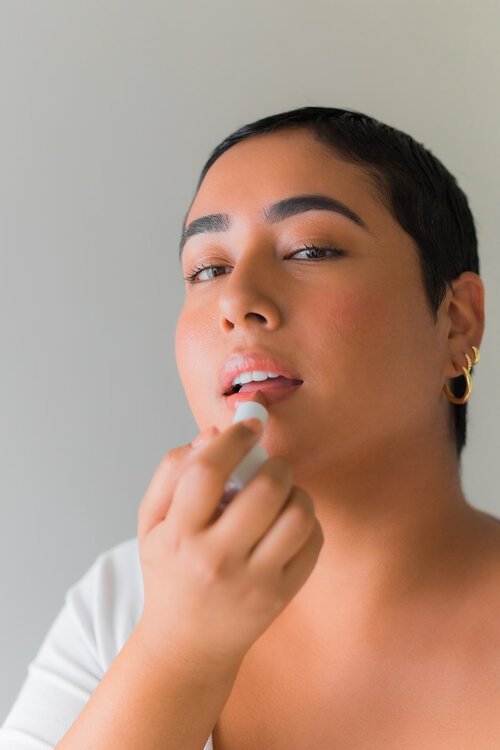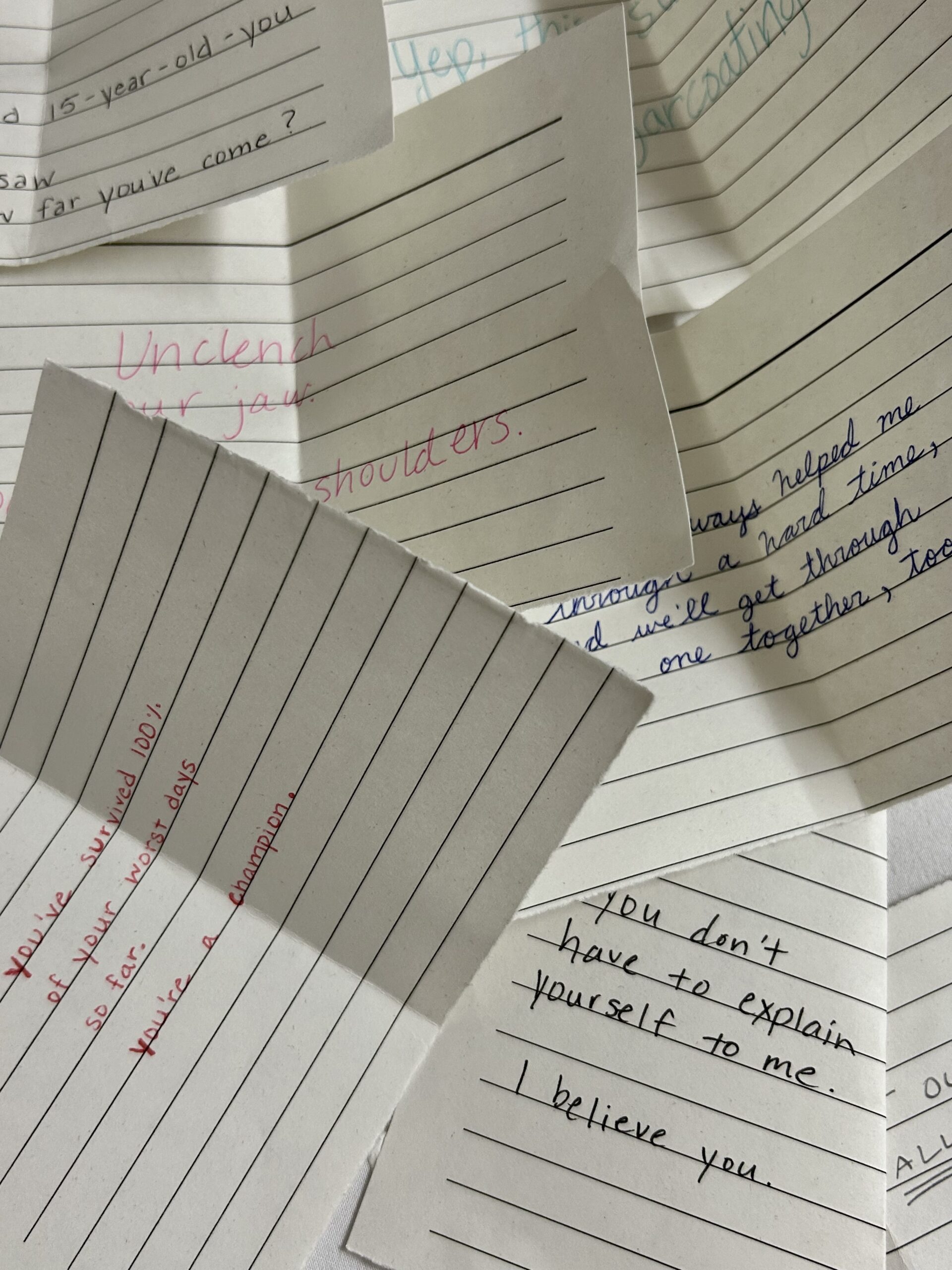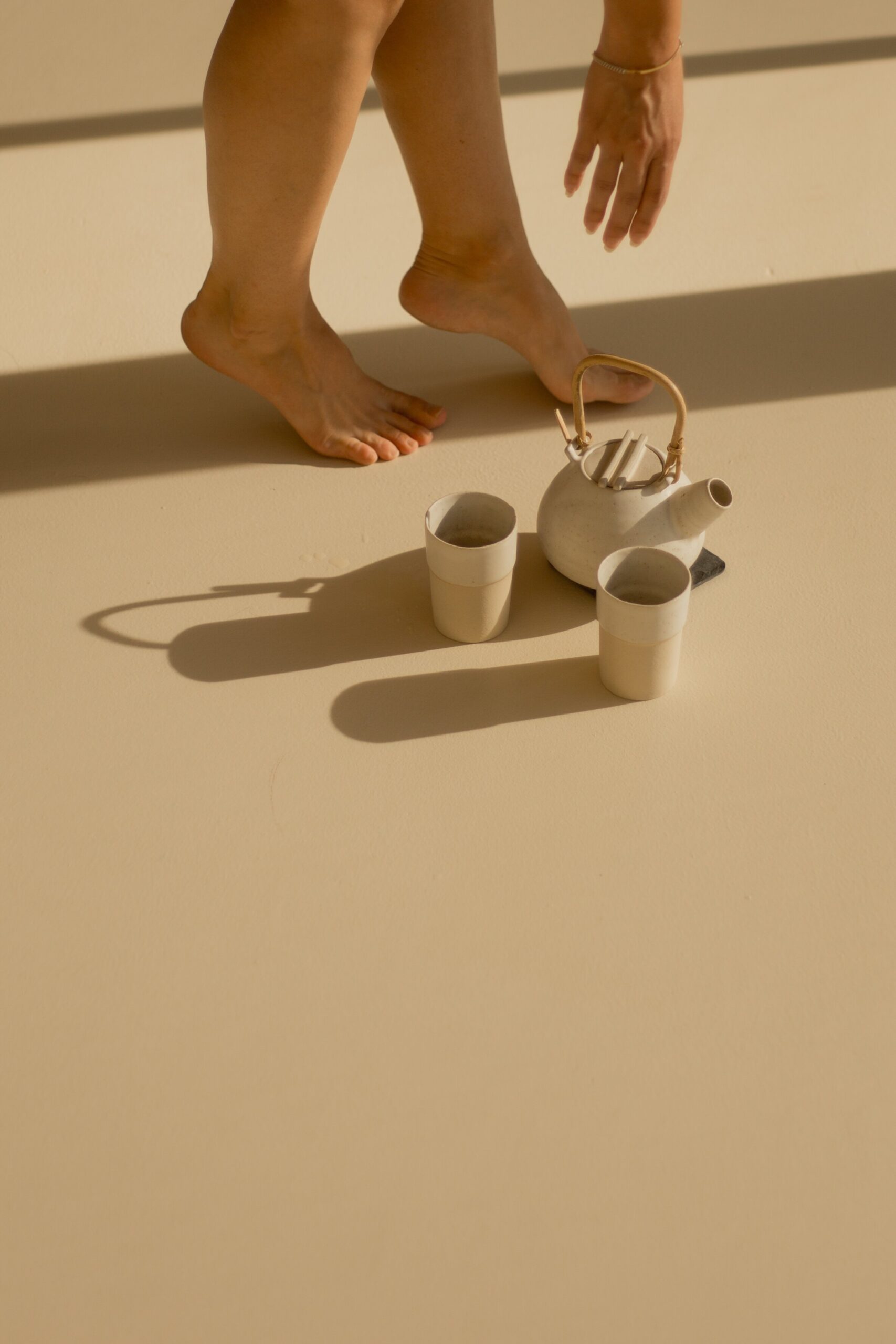I have been known to plan a lifetime in the space of a smile from a passerby. In one glance, I’m swept into imaginary arms, drinking morning coffee, painting a humble house, growing old and happy with a face whose name I’ll never know.
“I have been known to plan a lifetime in the space of a smile from a passerby.”
Basically, my mind becomes the montage from Up without the weepy ending.
It’s not just people that send me into this space, either. If I try my hand at watercolor painting, I’m suddenly wondering what my life will look like as a watercolorist in thirty years; I’ve even planned to go to yoga teacher training before I set foot in my first class. I’m always looking towards the end result of something, for better or for worse, and for as fun as it is to live a thousand lives — overthinking like this is exhausting.
See, I’m always trying to solve problems before they start. I’ve come to learn it is a safety mechanism: I believe that if I can predict every possible outcome before beginning a venture, I will protect myself from the sting of failure — or the surprise of success.
“I believe that if I can predict every possible outcome before beginning a venture, I will protect myself from the sting of failure — or the surprise of success.”
But think of it this way: If you write a story with every possible ending, you’ll never be done. And you’ll never have made an actual choice. You stay in limbo, imagining new scenarios, but never taking the bold step to bring you off the page and back into the real world — into your next project. I say all this, because that’s where I’ve been for much of my life, overthinking details to the point where all my energy is simply gone. And the inspiration has run out.
Why do we overthink?
Thinking a lot about one topic, event, or person can be part of a normal human experience, but dwelling in excess can end up freezing us in worry or fear. This overthinking is also known as rumination, and if it occurs within negative cycles it can contribute to anxiety and depression.
“Thinking a lot about one topic, event, or person can be part of a normal human experience, but dwelling in excess can end up freezing us in worry or fear.”
As I said earlier, we might use overthinking and rumination as safety mechanisms to protect ourselves from outcomes that landed us in unfavorable conditions in the past. As a shy kid, I would plot out every social interaction well in advance in order to feel more in control, and to reduce my social anxiety around speaking to others (okay, I still do this as an adult — I write myself a script before phone calls to set appointments).
We think more than we might “need” to because previous outcomes made us feel we had not thought enough.
How can we rethink overthinking?
As a chronic overthinker (I once wondered how I would split family holidays with a date who I hadn’t even met in person yet), it’s extremely important to me to approach this topic with as much grace and self-understanding as I possibly can. Just because you’re prone to creating mental flow charts of every possible outcome doesn’t mean you deserve judgment; it’s the way you are currently wired. It’s the way I’m currently wired.
“Overthinkers can be adaptable and quick on our feet when problems arise because we’re so familiar with creating scenarios out of thin air.”
To begin with, I’ll acknowledge the very real benefits of this process — overthinkers can be adaptable and quick on our feet when problems arise because we’re so familiar with creating scenarios out of thin air.
To others, it sounds like we’re thinking ten steps ahead, but I’ve found it’s more like a jumbled cloud of variables that spits out possibilities like a gumball machine. And I simply flag the ones that may become a problem. It takes energy, but it’s been an asset to every team I’ve ever worked on.
But overthinking in our personal lives doesn’t always include deadlines or benchmarks for success or failure, which is why it can stop us in our tracks when it comes to relationships or personal pursuits.
While I still have spirals, like believing a bout of PMS is the sign I’ll never be happy again (hey, we’ve all been there), I do have a better grasp on when I’m living too much in my head or my hormones. And I have some self-compassionate tools to help me!
How can we stop overthinking?
The first step is identifying when we’re stuck in cycles of thought that are not working for us.
Sometimes I love the feeling of getting swept up in my imagination and living in a fictional whirlwind romance, whether it’s with a person or a calling or a lifestyle. But if I find myself unable to make decisions about my life, career, or relationships, or if I’m noticing worsening anxiety or depression due to repetitive thoughts, that’s a sign I might want to explore techniques for slowing or stopping the process.
“If I’m noticing worsening anxiety or depression due to repetitive thoughts, that’s a sign I might want to explore techniques for slowing or stopping the process.”
Here are a few strategies that I’ve used and found particularly helpful:
- So many tactical approaches have worked wonders for me, but the most impactful one has been to keep self-forgiveness and self-acceptance at the forefront. Allow yourself to acknowledge how your mind works, and work with it. Give yourself the tools you need to succeed — like writing a script for phone calls, or researching a restaurant’s tagged photos on Instagram to get familiar with the dress code.
When you find yourself in a cycle of overthinking something from your past, find a mantra that works for you to repeat (mine is simple — “it’s okay, I am okay.”) This is especially helpful for situations that no longer have solutions that I tend to ruminate on; acknowledging and forgiving myself for whatever awkward or disappointing thing I said in the moment has helped me become a better person.
For present or future situations, I like to say “let it be” or “it will work out.” These don’t stop the overthinking, but I offer them up as a response to my current anxious mind. Sometimes, I even believe them.
- Get into your body, and out of your mind. Some experiences live in my head, over and over, to the point I either lose sleep over them or I dream about them. Either way, I cannot escape.
These are the moments where I find physical exertion helps significantly. I’m not a gym person, but my go-tos are heading out for a hike or rearranging all the furniture in my apartment. Seriously, don’t help me move my couch — my mind needs me to do this on my own.
Find the practice that helps you get into your physical self the most. Maybe it’s taking a shower, painting your nails, doing a body scrub, or even spending some intimate time — with a partner, or by yourself. Remind yourself that you are more than your mind, and reconnect with the physical plane.
- Meditation has been another tool that I’ve recently added to my toolkit, but I will note it’s particularly challenging for us overthinkers. Start small, with five or ten minutes and enter into it without expectation (the Calm app offers ten-minute meditations).
Meditation apps and devices have become particularly helpful for me as a neurodivergent person with racing thoughts constantly (I love accountability). But those things aren’t necessary for getting present. Even breathing exercises like the 4-7-8 technique have been helpful for me.
If meditation doesn’t feel accessible, give yourself the gift of a few moments of “free” thought. I do this when my mind is super active, and if I notice a particular thought catching me in its web, I try to release myself to allow other thoughts to join in.
- Express yourself in any way you can. I’ve done the typical journaling, which has worked well for me, but sometimes when I’m stuck in a loop I need something more. Creating an art journal helped me release my ideas about what a journal “should” be, especially since it meant combining my available resources with the chaos of my mind. Sometimes it just feels good peeling stickers and using an X-ACTO blade on some magazines, right?
You might also find this in sharing photography or creating other art for folks online. I love the accountability of all that! It’s important to remember, though — self-expression that invites a lot of feedback, like on Reddit or Instagram, can contribute to further cycles of rumination. You might find private expression most helpful to start with, as it’ll keep you from constantly checking for feedback.
- And of course, therapy. I am not afraid to admit I’ve been in therapy for many years, learning ways to work with myself on grounding and growth. Having a neutral person to offer an educated perspective about my experiences has been invaluable — I’m now able to identify my all-or-nothing thinking even before someone else points it out.
Cognitive Behavioral Therapy (CBT) may be particularly helpful in this instance. It’s a problem-oriented talking therapy that focuses on helping people identify and challenge unhelpful thoughts, learn coping skills, and change their behavior.
This is a scary option for many people, but if overthinking and rumination are taking over your day-to-day, I do recommend finding a therapist that works for you. Keep an open mind — and importantly, an objective one — while you’re searching. You deserve to advocate for the right fit, and you also deserve to find someone who challenges you to remain accountable to your own goals.
At the end of the day, despite what the title of this piece offers, I can’t stop your overthinking. Heck, I can’t even stop my own — but I can learn better ways to live with it.
“You deserve to feel ease in your life, and you deserve to know that you’re also not alone.”
You deserve to feel ease in your life, and you deserve to know that you’re also not alone. And if you have friends in this situation, I ask that you offer them grace; we’re all in our own states for a reason that may not always be known to others.
If you have ways to soothe overthinking and rumination spells, please drop them in the comments below! I have no second thoughts — the more we share about this, the better off we’ll be.
Emily McGowan is the Editorial Director at The Good Trade. She studied Creative Writing and Business at Indiana University, and has over ten years of experience as a writer and editor in sustainability and lifestyle spaces. Since 2017, she’s been discovering and reviewing the top sustainable home, fashion, beauty, and wellness products so readers can make their most informed decisions. Her editorial work has been recognized by major publications like The New York Times and BBC Worklife. You can usually find her in her colorful Los Angeles apartment journaling, caring for her rabbits and cat, or gaming. Say hi on Instagram!
















